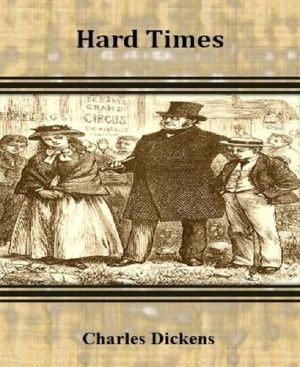Charles Dickens 16-The Pickwick Papers a Tale of Two Cities Great Expectations Oliver Twist Bleak House Hard Times Pickwick Papers Our Mutual Friend Little Dorrit Old Curiosity Shop Mystery of Edwin Drood Dombey and Son Martin Chuzzlewit Life and Adventures of Nicholas Nickleby David Copperfield Barnaby Rudge Sketches by Boz

- Authors
- Dickens, Charles
- Publisher
- AEB Publishing
- Tags
- fiction , satire , family & relationships , love & romance , romance , contemporary , collections & anthologies , humorous , mystery & detective , hard-boiled , action & adventure
- ISBN
- 9783736809741
- Date
- 2014-05-09T00:00:00+00:00
- Size
- 0.40 MB
- Lang
- en
An English writer and social critic. He created some of the world's most memorable fictional characters and is generally regarded as the greatest novelist of the Victorian period. Includes an active table of contents for easy navigation.Contents Sketches by Boz (1836) The Pickwick Papers (1836) Oliver Twist (1839) The Life and Adventures of Nicholas Nickleby (1839) The Old Curiosity Shop (1841) Barnaby Rudge (1841) Martin Chuzzlewit (1844) Dombey and Son (1848) David Copperfield (1849) Bleak House (1853) Hard Times (1854) Little Dorrit (1855) A Tale of Two Cities (1859) Great Expectations (1861) Our Mutual Friend (1865) The Mystery of Edwin Drood (1870) The Pickwick Papers (1836) The Pickwick Papers is a sequence of loosely-related adventures. Its main literary value and appeal is formed by its numerous memorable characters. Each character in The Pickwick Papers, as in many other Dickens novels, is drawn comically, often with exaggerated personalities. Oliver Twist (1839) Probably the best-known of all Dickens' works, Oliver Twist was originally published as a serial, and sought to bring the public's attention to various contemporary social evils, including the workhouse, child labour and the recruitment of children as criminals.The novel is full of drama, sarcasm and dark humour even as it reveals the hypocrisies of the time. The Life and Adventures of Nicholas Nickleby (1839) This lengthy burlesque novel centers around the life and adventures of Nicholas Nickleby, a young man who must support his mother and sister after his father dies. While some consider the book to be among the finest works of 19th century comedy, Nicholas Nickleby is occasionally criticized for its lack of character development. The Old Curiosity Shop (1841) Little Nell Trent looks after her grandfather in the gloomy Curiosity Shop, as their fortunes dwindle. To ensure Nell's future, her grandfather borrows money and attempts to gamble it into a larger sum, but fails and loses the shop to Daniel Quilp, a vengeful and malicious man, who forces them to flee into the country. Barnaby Rudge (1841) Based around the Gordon riots of 1780 as seen through the eyes of the simple but good-hearted Barnaby Rudge. The fanatical anti-Catholic Lord George Gordon is treated with some sympathy in the novel, which concludes with a panoramic description of the riots. One of two works that Dickens published in his short-lived weekly serial Master Humphrey's Clock, this was Dickens' first attempt at a historical novel. Martin Chuzzlewit (1844) Considered the last of Dickens' picaresque novels, Martin Chuzzlewit was released to the public in monthly installments. Sales of the monthly parts were disappointing, so Dickens changed the plot to send the title character to America. This satirical twist portrays America as a near wilderness, with pockets of civilization populated by deceptive, self-promoting hucksters. Bleak House (1853) The story concerns a long-running legal dispute which has far-reaching consequences for all involved, and serves as Dickens' assault on the flaws of the British judiciary system (based in part on his own experiences as a law clerk). The author's harsh characterization of the slow, arcane Chancery law process gave voice to widespread frustration with the system, helping to set the stage for its eventual reform in the 1870s. Hard Times (1854) A bitter and scathing satire on the belief in "Facts, nothing but Facts" in education, the results developed in a tale of deep and pathetic interest. Little Dorrit (1855) Dickens' classic love story, set in a time of chronic debt and financial collapse. A Tale of Two Cities (1859) Sidney Carton is almost the only case in which Dickens has drawn a hero on the true heroic scale, and his famous act of self-sacrifice is unmatched in fiction. The book must be ranked very high among the great tragedies in literature. Great Expectations (1861) The story of the orphan Pip, writing his life from his early days of childhood until adulthood and trying to be a gentleman along the way. Our Mutual Friend (1865) The story of the Harmon ''dust'' fortune and those who inherit it. Although somewhat a mystery, an important point concerning the identity of certain characters is revealed halfway through, without hinting as to the ending.